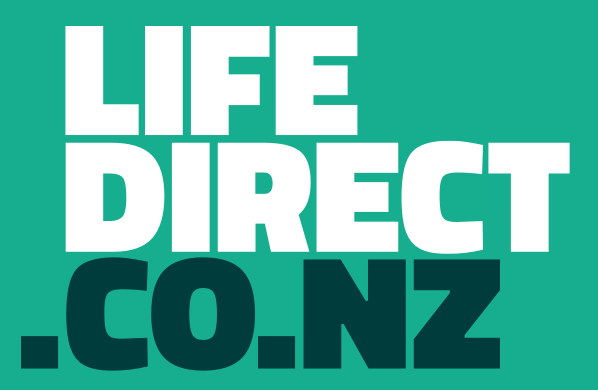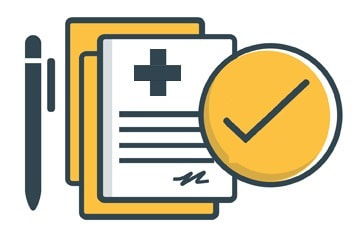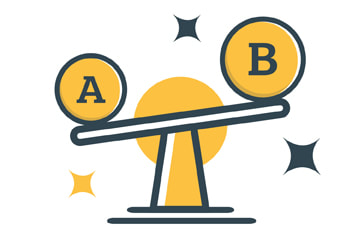Life Insurance Policy Comparison - AIA vs Asteron vs Chubb Life and more
Use our comprehensive table and tools to compare the benefits and coverage of New Zealand’s most popular life insurance policies to discover the right option that suits your needs.
Updated 19 May 2023
Our guide covers the following:
Advertising Disclosure: MoneyHub may receive a payment if you make a purchase on our website. Such commercial arrangements do not influence our independent reviews of financial products. Please refer to our advertising policy for more details.
Know this: Before making any policy switch, you must confirm that any exclusions on your previous policy will be covered on your new policy. This can catch people who think they're covered but find themselves uninsured by exclusions. We are aware of New Zealanders switching policies without paying careful attention to any exclusions they may have. This has led to declined claims.
Video explainer: MoneyHub Founder Christopher Walsh explains this guide in a video summary below:
Our guide covers the following:
- Why should you buy life insurance and what makes a good life insurance policy?
- Life Insurance Policy Comparison - AIA vs Asteron Life vs Chubb Life vs Fidelity vs Westpac vs Partners Life
- Common mistakes when purchasing life insurance - five things you should look out for
- Frequently Asked Questions
Advertising Disclosure: MoneyHub may receive a payment if you make a purchase on our website. Such commercial arrangements do not influence our independent reviews of financial products. Please refer to our advertising policy for more details.
Know this: Before making any policy switch, you must confirm that any exclusions on your previous policy will be covered on your new policy. This can catch people who think they're covered but find themselves uninsured by exclusions. We are aware of New Zealanders switching policies without paying careful attention to any exclusions they may have. This has led to declined claims.
Video explainer: MoneyHub Founder Christopher Walsh explains this guide in a video summary below:
|
Your guide to comparing life insurance policies, thanks to Life Direct
|
Why should you buy life insurance?
Having life insurance is a way to protect those closest to you from the financial impact of your death (as things happen unexpectedly). In short, it is a contract between an insurer and a policyholder that guarantees a sum of money will be paid by the insurer to the named beneficiaries in exchange for paying for a premium by the policyholder (i.e. you).
What’s most important about choosing a good life insurance policy is finding the right policy that fits your needs and circumstances while not overpaying. Before applying for life insurance, it’s good to analyse your financial situation as well as to determine not just how much money is needed to pay off major debt, such as a house mortgage, but also how much money may be required to maintain your beneficiaries’ living needs or expenses.
The goal of getting life insurance is to replace lost income, reduce a debt burden and cover unexpected costs.
A good rule of thumb - cover your beneficiaries for 10 times the annual pre-tax income. That means if you earn $65,000 per year, then it may be reasonable to insure for $650,000 at a minimum. Our life insurance calculator offers a more extensive assessment of this.
What’s most important about choosing a good life insurance policy is finding the right policy that fits your needs and circumstances while not overpaying. Before applying for life insurance, it’s good to analyse your financial situation as well as to determine not just how much money is needed to pay off major debt, such as a house mortgage, but also how much money may be required to maintain your beneficiaries’ living needs or expenses.
The goal of getting life insurance is to replace lost income, reduce a debt burden and cover unexpected costs.
A good rule of thumb - cover your beneficiaries for 10 times the annual pre-tax income. That means if you earn $65,000 per year, then it may be reasonable to insure for $650,000 at a minimum. Our life insurance calculator offers a more extensive assessment of this.
What makes a good life insurance policy?
In order for you to make an informed decision about which policy is most suitable for you, it’s important to understand what the crucial policy features and benefits are while balancing between price and coverage duration. While not every feature will be relevant to you, for the sake of completeness and clarity, we wanted to lay everything out so as to make a comprehensive comparison (for more detailed information, check out our Complete Guide to Life Insurance).
‘Must have’ life insurance policy features:
- Funeral costs cover/bereavement support - funeral costs cover reduces the burden on your family after you’ve passed away by providing money for your funeral ceremony and burial.
- Terminal illness cover - in the case that you only have up to a year to live due to an incurable sickness, your beneficiaries can get an advance on all or some of the sum assured amount.
- Special events increase - although this may vary from policy to policy, special events include getting married or divorced, having children, taking out a home loan, and others. This benefit allows you to increase your sum assured amount.
- Premium waiver - this is also known as a premium holiday. If you are struggling to pay the premiums, it can be useful for you to put a stop to your payments for up to 6 months.
- Trauma cover - if you are diagnosed with a critical illness or injury, trauma insurance cover provides you with money to pursue treatment options. Serious health conditions may include cancer, heart attack, stroke and many more.
- Income protection cover - this is designed to pay regular amounts to you if you are unable to work due to illness or injury.
How to get the best deal for your life insurance:
- Never go directly to an insurer. Most likely, you’ll end up paying the full price without knowing if you received the best deal. Get at least three quotes, as premiums can differ by hundreds of dollars.
- Use a policy comparison tool like LifeDirect. It is the most extensive tool out there and offers quotes from multiple leading life insurers such as AIA, Chubb Life, Fidelity and others. All have strong credit ratings, meaning the insurers will pay if you or your family need to claim. And, should you need to claim, LifeDirect handles that too by liaising with the insurer. LifeDirect does not give insurance advice; instead, it aims to give New Zealanders all the relevant information required for them to make a better decision.
- In the case where you may need professional guidance related to health needs or family situations, it may be best to contact an insurance broker to help guide you through the process.
- At a minimum, your life insurance policy should cover your debts, funeral expenses, full repayment of your mortgage as well as your family’s or beneficiary’s living costs.
- Because life insurance plays such an integral component in your family’s financial plan and future, it’s worth every bit of time to do some research before deciding what policy to purchase and from which provider.
Life Insurance in a Nutshell - Our View:
- Compare policy costs across multiple insurers: To find the best life insurance deal, compare quotes from multiple providers. Don't settle for the first offer without exploring other options.
- Tailor your coverage based on individual needs: Our sample quotes showcase various insurers and prices, but remember that each person or couple has unique requirements and expectations. Thoroughly research and compare the market to find the best fit for you.
- Use a comparison tool for convenience: We like comparison tools like LifeDirect, which offers the most extensive options for obtaining quotes and purchasing policies from leading life insurers such as Chubb Life, AIA, Fidelity, and more. These companies have strong credit ratings, ensuring they honour claims when needed.
- Enjoy the benefits of a comprehensive service: Besides providing quotes and facilitating policy purchases, LifeDirect also assists with claims by liaising with insurers on your behalf. This added support could provide peace of mind during difficult times.
- Overall, finding the right life insurance policy involves researching and comparing options from various insurers to ensure you get the best deal possible. Tools like LifeDirect can simplify the process and offer additional support when needed.
Life Insurance Policy Comparison - AIA vs Asteron Life vs Chubb Life vs Fidelity vs Westpac vs Partners Life
Making a decision as to what life insurance policy is best requires many factors to be considered, including:
1. Financial strength and credit rating
2. Premium structure
3. Yearly renewable payments
4. Level term payments
5. Claims and approvals (also known as underwriting)
6. Access to advisory assistance
7. Policy Wording Pass Back
1. Financial strength and credit rating
- Given that life insurance can be a long-term purchase, in the long run, you want a company that meets its contractual obligation, i.e. pays claims. Therefore, we strongly suggest that you find insurance companies in New Zealand with a financial strength rating of A- or higher. The higher the financial strength, the more likely an insurer will be able to meet its claim obligations.
- That being said, there is little difference between an AA- and an A+ rated insurer - both should be able to pay out on claims. However, there is a difference between A+ and B+ or C - and such ratings play a more significant part in your decision-making process. And more so post-Covid-19.
2. Premium structure
- The most common payments are annual/yearly renewable term and level term.
3. Yearly renewable payments
- These are fixed for one year at a time and usually increase in line with age until an agreed age, regardless of the insured person's health.
4. Level term payments
- This is a multi-year policy where the premiums are fixed at the start and remain the same for the agreed period. These fixed premiums are most commonly used until age 65, 70 or 80. Level term payments ensure that the premiums and sum assured amount will not increase, but as a result, this type of policy will be more expensive initially.
- The best life insurance companies in New Zealand offer flexible policies with features and benefits that can be tailored to you and your family's unique circumstances. This involves balancing price and long-term coverage as well as structuring different premium payments, e.g. a combination of yearly renewable payments and level term payments.
5. Claims and approvals (also known as underwriting)
- Although every life insurance company goes through different approval processes, having a thorough onboarding process is a good indicator that few questions will be asked when the time comes to make your claim. In short, we believe there is a direct link between the thoroughness of the onboarding process upfront and the ease of getting claims paid.
- An underwriter's role is to ensure that applicants (like yourself) are charged the appropriate premium (price) for the desired level of insurance coverage based on needs and assessed risk. Doing a thorough job at this is important.
- Some providers may ask fewer questions upfront, but when circumstances change, making claims will prove to be a much more difficult process.
6. Access to advisory assistance
- There is no one-size-fits-all solution to choosing life insurance policies because each individual is different based on their unique needs and situation. Having access to a financial or insurance advisor is super helpful in determining the right policy.
- Tailoring features and benefits may include terminal illness benefits, special events increases and premium waivers.
7. Policy Wording Pass Back
- The benefit of having a built-in policy benefit called 'policy wording pass back' means that when an insurance company announces new policy enhancements, they are also passed back to existing customers, i.e. automatically applied to your policy.
- This guarantees that your policy is upgraded and future-proof for things that may happen in the future.
Policy Comparison Table
| Life Insurance policy comparison criteria | Chubb Life | Partners Life | AIA | Fidelity | Westpac | Asteron Life |
|---|---|---|---|---|---|---|
| Financial Strength and Credit Rating | A+ (Excellent) A. M. Best | A- (Excellent) A. M. Best | AA (Very Strong) Fitch | A- (Excellent) A. M. Best | A+ (Excellent) Standard and Poor's | A+ (Excellent) Standard and Poor's |
| Premium structure | Yearly renewable | Yearly renewable | Yearly renewable | Yearly renewable and level term | Yearly renewable | Yearly renewable and level term |
| Claims and approvals (underwriting) | Thorough onboarding process | Thorough onboarding process | Thorough onboarding process | Thorough onboarding process | Thorough onboarding process | Thorough onboarding process |
| Access to advisory assistance | Yes | Yes | Yes | No | Yes | Yes |
| Customer Support | Live chat available | Live chat available | Live chat available | Live chat available | No live chat available | Live chat available |
| Policy Wording Pass Back | Does provide | Does provide | Does provide | Does not provide | Does not provide | Does provide |
| Website | Click Here | Click Here | Click Here | Click Here | Click Here | Click Here |
Note: We decided not to make a premium price comparison for different life cover policies, given that there are many factors that determine how much a policy will cost. These include age, gender, health, coverage amount and lifestyle.
Deciding what the premium payments will be and the right policy can be assisted with the help of the underwriter, financial and/or insurance advisors. For more details, you can visit our Complete Guide to Life Insurance.
Alternatively, you can make direct price comparisons using LifeDirect, the most extension comparison tool for life insurance.
Deciding what the premium payments will be and the right policy can be assisted with the help of the underwriter, financial and/or insurance advisors. For more details, you can visit our Complete Guide to Life Insurance.
Alternatively, you can make direct price comparisons using LifeDirect, the most extension comparison tool for life insurance.
Common mistakes when purchasing life insurance - Five things you should look out for
1. Not enough cover or too much cover
2. Not reviewing or updating your policies
3. Buying on price
4. Failure to declare
5. Not comparing prices with other companies.
Another option is to use an online comparison tool such as LifeDirect to give you more reliable insights and details about each provider and policy.
- There should be a balance for how much you should cover to ensure that you don’t end up overpaying for premiums. Paying off the mortgage and funeral costs are often the focus for many people, but additional financial commitments such as spouses or children need to be considered.
- The goal of life insurance is to purchase enough coverage so that the lifestyle of your loved ones is not compromised if you pass away. However, they should not be in a better financial position than when you were alive.
2. Not reviewing or updating your policies
- Every few years, make sure you review how much cover you need, particularly if your life situations change. These may be marriage or divorce, having children, added debt, medical diagnosis and many more.
- Often, life insurance is treated as a ‘set and forget’ purchase. What’s worse is if your policy payments end up becoming a waste of time, money, irrelevant or benefiting the wrong people (which sometimes does happen).
- Having the right coverage (amount and duration) in place means less for you - and those you care for - to worry about. At a minimum, you should review your cover every couple of years so that your policy needs are relevant in the context of your changed situation.
- Reviewing your life insurance policies may also help you receive bundling discounts if you do end up adding additional life insurance covers.
3. Buying on price
- One of the most common mistakes we see is that people assume that the value of life insurance policies is based on price as its primary driver. However, this is not entirely true. Like any other product, quality plays an important role.
- Watch out for those insurers that trick people with first-year discounts. What seems appealing at first can turn out to be unfair increases every year after that. A basic policy may cost less but end up not making payouts or paying less in the event of a claim.
- Therefore, it pays to understand the options and variables you have before making a decision. For example, when seeking out an insurer, it’s essential to assess their financial strength - that way, you know they can actually payout if you claim. Other things to look out for include riders and exclusions.
- Riders are additional provisions related to the cover and kick in if a particular condition is met. An example of exclusion would be if a policy “won’t pay out on suicides” or pays out claims to “accidental death only”. You want a clear policy, not some cheap policy with a lot of exclusions. If you have any doubts about anything, it will help to discuss with an insurance broker who can work with you to find the best policy that best suits your needs and situation.
4. Failure to declare
- Especially when it comes to health conditions, failing to declare may mean that insurers have the right to void the policy. For example, even though you may have paid for cover for years, failing to declare means an insurer can refuse to payout.
- The best approach is to declare everything and let the insurer determine whether it is important or not.
5. Not comparing prices with other companies.
- Finding the best life insurance policy for you comes down to balancing price and coverage. If you want to find the lowest rates, we suggest you get at least three quotes from different providers to compare their benefits and premiums against each other.
Another option is to use an online comparison tool such as LifeDirect to give you more reliable insights and details about each provider and policy.
Life Insurance Policy Comparison Frequently Asked Questions
While our tables above make life insurance policies more comparable, there will always be questions. We've anticipated the most common queries below.
How much will life insurance cost me?
The cost of life insurance (i.e. premiums) you pay your insurer depends on several factors, including age, health status, occupation risk and smoking status. As a first stop, LifeDirect helps you compare life insurance quotes from New Zealand’s leading insurers to get a better idea of how much your premiums will be.
How can I work out how much cover I need?
We suggest that the coverage amount should be at least ten times your pre-tax salary. The reason is that when you pass away, there needs to be enough money to reduce existing debt burdens (such as house mortgage), ongoing expenses of the family and unexpected costs that may arise. Therefore, insuring for ten times your salary provides a good financial cushion for your family and its beneficiaries.
Determining how much cover you should buy is knowing how to balance price and coverage. Having too little cover is often due to only having considerations of mortgage and outgoing debt rather than other family expenses. On the other hand, a sign that there is too much cover is if your family ends up being in a better financial position when you pass away.
Determining how much cover you should buy is knowing how to balance price and coverage. Having too little cover is often due to only having considerations of mortgage and outgoing debt rather than other family expenses. On the other hand, a sign that there is too much cover is if your family ends up being in a better financial position when you pass away.
How will claims be paid out?
Payouts are generally tax-free in New Zealand. One exception is any payments you receive under an income protection policy, as income is tax-deductible. Payouts can be made either as a lump sum or through a series of payments. Your insurer, broker or bank will pay out a policy to your estate or, if you have a qualifying terminal illness, your bank account.
When should I cancel or change my life insurance policy?
There are many reasons why you may consider changing or cancelling your life insurance policy. But, no matter what that driver is, the decision should not be rushed.
Some common changes to life insurance policies could be making changes to who the policy's beneficiary is, cover levels (adding or reducing life insurance covers) and switching insurance companies. Our guide for When to Cancel or Change a Life Insurance Policy dives deeply into this issue.
Some common changes to life insurance policies could be making changes to who the policy's beneficiary is, cover levels (adding or reducing life insurance covers) and switching insurance companies. Our guide for When to Cancel or Change a Life Insurance Policy dives deeply into this issue.
What is “indexation”?
Indexation is an automatic annual increase to the insured amount to make sure the value of your cover is not eroded by inflation so you can keep up with the increasing cost of living. For example, if you had cover of $100,000 and inflation that year was 3%, your cover would increase to $103,000. Your premiums will also increase when the cover increases if you elect this option (hence why it is optional).
What happens if I stop paying my premiums?
Non-payment can result in your policy being cancelled by your insurer. If you cannot make premium payments, you can either cancel your policy or add a premium waiver (also known as a premium holiday)
What if my circumstances change?
It’s important to ensure that you review your policy once every few years. Life circumstances change (such as marriage or divorce, having children, added debt, or medical diagnosis), which may cause your policy and coverage to become outdated or irrelevant.
Life Insurance in a Nutshell - Our View:
- Compare policy costs across multiple insurers: To find the best life insurance deal, compare quotes from multiple providers. Don't settle for the first offer without exploring other options.
- Tailor your coverage based on individual needs: Our sample quotes showcase various insurers and prices, but remember that each person or couple has unique requirements and expectations. Thoroughly research and compare the market to find the best fit for you.
- Use a comparison tool for convenience: We like comparison tools like LifeDirect, which offers the most extensive options for obtaining quotes and purchasing policies from leading life insurers such as Chubb Life, AIA, Fidelity, and more. These companies have strong credit ratings, ensuring they honour claims when needed.
- Enjoy the benefits of a comprehensive service: Besides providing quotes and facilitating policy purchases, LifeDirect also assists with claims by liaising with insurers on your behalf. This added support could provide peace of mind during difficult times.
- Overall, finding the right life insurance policy involves researching and comparing options from various insurers to ensure you get the best deal possible. Tools like LifeDirect can simplify the process and offer additional support when needed.
Life insurers we compared:
Related guides
Related guides
- Compare Life Insurance
- Life Insurance with Pre-Existing Conditions
- Life Insurance Policies - Features and Questions to Ask
- When to Cancel or Change a Life Insurance Policy
- Brokers vs Insurers
- Smoking, Vaping and Life Insurance
- Life Insurance Calculator
- Health Insurance
- Mortgage Insurance
- Funeral Insurance
- Insurance Brokers






